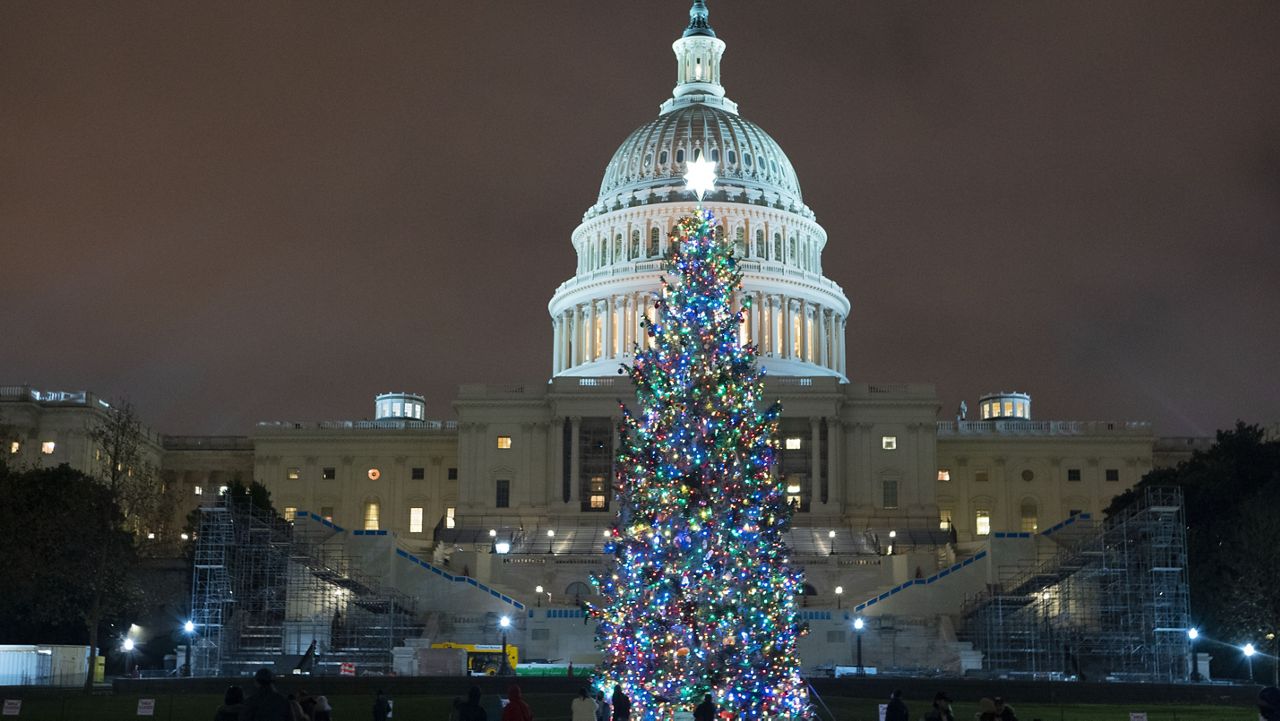Senate Majority Leader Mitch McConnell (R-KY) announced on the Senate floor Sunday that Congressional leaders have agreed to a deal on a COVID-19 stimulus package, finally delivering urgent relief to businesses and individuals.
The much-needed measure, coming in at more than $900 billion, will be voted on by the House Monday, according to House Majority Leader Steny Hoyer (D-MD), along with a $1.4 Trillion omnibus spending bill and reams of other unfinished legislation on taxes, energy, education and health care.
Lawmakers will only have a few hours to review the measure before voting on it.
Here's what's in the combined bill:
Unemployment insurance ($120 billion). Revives supplemental federal pandemic unemployment benefits but at $300 per week — through March 14 — instead of the $600 per week benefit that expired in July. Extends special pandemic benefits for “gig” workers and extends the maximum period for state-paid jobless benefits to 50 weeks.
Direct payments ($166 billion). Provides $600 direct payments to individuals making up to $75,000 per year and couples making $150,000 per year — with payments phased out for higher incomes —- with $600 additional payments per dependent child.
Paycheck Protection Program ($284 billion). Revives the Paycheck Protection Program, which provides forgivable loans to qualified businesses. Especially hard-hit businesses that received PPP grants would be eligible for a second round. Ensures that PPP subsidies are not taxed.
Delivers more than $30 billion for procurement of vaccines and treatments, distribution funds for states, and a strategic stockpile. Adds $22 billion for testing, tracing and mitigation, $9 billion for health care providers, and $4.5 billion for mental health.
Delivers $54 billion to public K-12 schools affected by the pandemic and $23 billion for colleges and universities; $4 billion would be awarded to a Governors Emergency Education Relief Fund; nearly $1 billion for Native American schools.
Provides money for a first-ever federal rental assistance program; funds to be distributed by state and local governments to help people who have fallen behind on their rent and may be facing eviction.
Increases food stamp benefits by 15% and provides funding to food banks, Meals on Wheels and other food aid. Provides an equal amount ($13 billion) in aid to farmers and ranchers.
Provides $10 billion to the Child Care Development Block Grant to help families with child care costs and help providers cover increased operating costs.
Forgives a $10 billion loan to the Postal Service provided in earlier relief legislations.
The omnibus measure wraps 12 spending bills into one and funds agency operating budgets through Sept. 30 of next year.
It combines Democratic priorities such as a $12.5 billion increase over existing budget limits for domestic programs while cutting Immigration and Customs Enforcement detention and removal costs by $431 million.
COVID-19 has contributed to sharply lower costs. Republicans supported sustained defense spending, energy provisions and longstanding bans on federal funding of abortion.
The measure also provides President Trump with a last, $1.4 billion installment for a wall on the U.S.-Mexico border.
The measure also contains more than 3,000 pages of miscellaneous legislation, including:- Surprise medical billing. Includes bipartisan legislation to protect consumers from huge surprise medical bills after receiving treatment from out-of-network providers.
- Tax extenders. Extends a variety of expiring tax breaks, including lower excise taxes of craft brewers and distillers. Renewable energy sources would see tax breaks extended, as would motorsport facilities, and people making charitable contributions. Business meals would be 100% deductible through 2022.
- Water projects. Includes an almost 400-page water resources bill that targets $10 billion for 46 Army Corps of Engineers flood control, environmental and coastal protection projects.
- Clean energy. Boosts “clean energy” programs like research and development, efficiency incentives and tax credits. Phases out “superpollutant” hydrochlorofluorocarbons.
- Education. Includes a bipartisan agreement to forgive nearly $1.3 billion in federal loans to historically Black colleges and universities, deliver Pell grants to incarcerated students after a 26-year ban and simplify college financial aid forms.
- Horse racing “doping.” Adds bipartisan legislation by Majority Leader Mitch McConnell, R-Ky., to create national medication and safety standards for the horse racing industry as lawmakers move to clamp down on use of performance-enhancing drugs that can lead to horse injuries and deaths.
The Associated Press contributed to this report.



